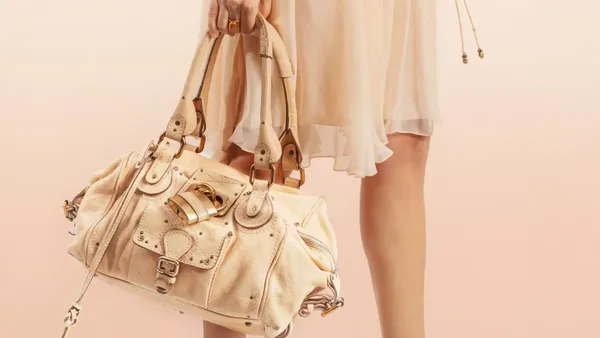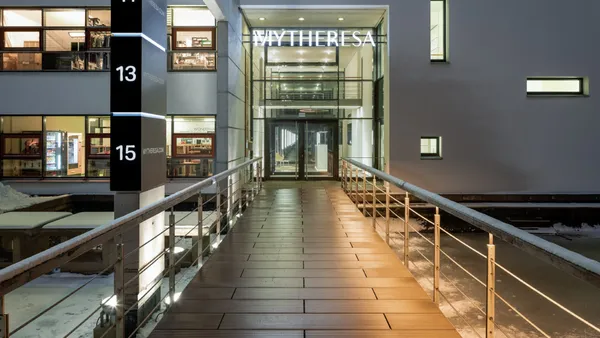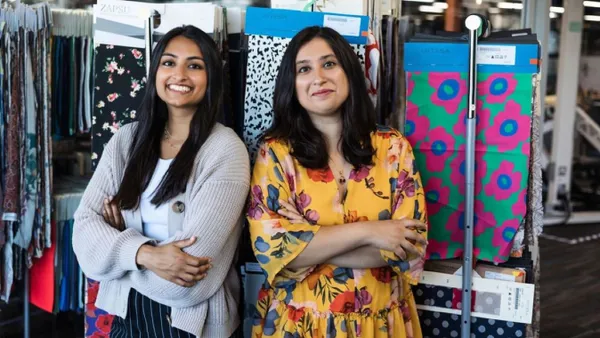As 2023 comes to a close, it's high time to consider what the next 12 months will bring. The retail landscape continues to evolve rapidly, and between the latest tech advancements (hello, AI) and shifting consumer behaviors, it's more important than ever to adapt.
But what exactly are you adapting to?
In this article, we'll explore the first five retail trends shaping the industry in 2024. We'll also discuss how retailers can adapt to these trends and stay ahead of the curve.
1. Expect the continued rise of experiential retail
Forward-thinking retailers recognize that they simply cannot compete on price or product alone. With the rise of e-commerce and the increasing availability of products from various other sources, brands today must compete on experience. As Jon Morgan, CEO of Venture Smarter, puts it, "Shoppers are not just looking to buy products; they crave memorable experiences."
In other words, you must give customers something they can't find anywhere else. And for many merchants, this means diving into experiential retail. Take, for instance, Nike, which uses AR to create unique shoe trial experiences. In some of its stores, customers can use a smartphone app to see how different sneaker styles would look on their feet.
Of course, unique retail experiences aren't always rooted in technology. Trader Joe's, for example, is known for its friendly and community-centric store atmosphere, offering a warm and engaging shopping experience thanks to its empowered sales associates.
The key is figuring out the types of retail experiences your specific customers value and finding ways to deliver them in-store.
2. Increasing use cases of AI in retail
Since this is an article focusing heavily on retail trends, we'd be remiss if we didn't talk about artificial intelligence (AI) and conversational commerce. While the technology has been around for quite some time, the rise of more mainstream solutions like ChatGPT propelled AI to the forefront of innovation.
Everyone from retail brands to online marketplaces is doubling down on their AI efforts. Instacart, for example, launched a ChatGPT plugin to power its virtual shopping assistant. Meanwhile, Walmart is developing its own AI language models to bolster its supply chain.
Some companies are using AI to improve personalization. Nako Cosmetics, a private-label cosmetics manufacturer, is leveraging the technology to create bespoke customer experiences.
"The rise of data analytics and AI means retailers can provide more tailored shopping experiences than ever before. At Nako, we've begun leveraging AI-driven insights to curate personalized product suggestions," remarks founder Sophia Tang.
"For instance, by analyzing purchase histories and skin type inputs, our online platform offers bespoke skincare routines. In a recent pilot program, this hyper-personalization led to a 28% uptick in repeat purchases and a 15% increase in average order value."
3. Increased DTC presence in retail stores
As the direct-to-consumer (DTC) market becomes even more competitive, brands will embrace brick-and-mortar retail as a channel for reaching shoppers.
For instance, the DTC mattress company Casper opened over 50 physical stores in North America. Similarly, the athleisure brand Outdoor Voice opened 20+ brick-and-mortar locations in the US.
These moves acknowledge the enduring value of physical stores—particularly when creating tangible brand experiences and connecting with customers on a personal level.
We don't expect this trend to slow down anytime soon, and in 2024, more DTC brands will likely double down on their physical presence.

4. Community-centric retailers will flourish
There are several reasons why community-centric retail will continue to rise in 2024.
For one, consumers today are increasingly seeking authentic, meaningful experiences when they shop. Research shows that 88% of consumers consider authenticity as an important factor when deciding which brands to support.
Not only that but there's a growing desire among shoppers to support local stores. According to a survey by Intuit, almost two-thirds (62%) of consumers want to shop at local businesses.
All this is to say that community-centric retail is here to stay and is a movement you should capitalize on.
Meaghan Brophy, a Retail Expert at Fit Small Business, recommends taking a hyperlocal approach.
"Implement a microlocalization strategy by tailoring product assortments to the specific tastes and preferences of different neighborhoods," advises Brophy.
Another idea, she says, is to "Partner with local artisans or businesses to create exclusive products or services that resonate with the community, leveraging consumers' inclination towards supporting local businesses."
These steps enable you to tap into the growing consumer demand for authenticity and community support. This, in turn, helps you build stronger relationships with your customers and differentiate your brand.
5. Anticipate the growth of pop-up stores and short-term retailing
We expect short-term retailing—specifically in the form of pop-up stores—to gain even more traction in 2024.
With shoppers seeking unique and memorable shopping experiences, pop-ups are an excellent tool for creating novel and engaging encounters. And because of their limited time availability, pop-ups often create a "now or never" mentality, which drives foot traffic.
In addition, pop-up stores allow brands to experiment with locations and concepts without long-term commitments, which means they can test market trends, consumer preferences and new products in a real-world setting with minimal risk and investment.
Read about all 10 trends here.
Final words
We expect the retail landscape in 2024 to be more dynamic and customer-centric than ever. To navigate these trends, it's crucial to adapt and innovate continuously. Equipping your teams with the right technology is also a must.
IWD's visual merchandising platform makes your retail life easier through digital planograms and retail execution tools. Save time, maximize sales, and ensure that your retail programs are implemented flawlessly across all your stores. Get in touch and discover why brands like Dior, Vans, Dockers and Benefit choose IWD to power their merchandising initiatives.










